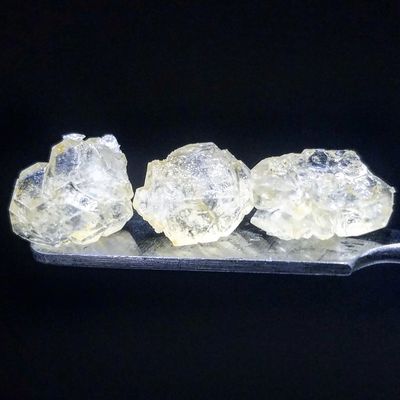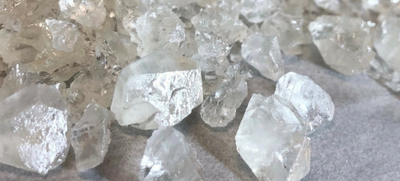One of the amazing mysteries of cannabis is the myriad of chemical compounds the plant can produce. Many of the phytochemicals found in cannabis — such as terpenes and flavonoids — are also present in other members of the plant kingdom. But a special class of chemicals (the cannabinoids) seem to be created almost exclusively by cannabis.
More than 100 different cannabinoids have been identified in cannabis, the most well-known being THC, the chemical largely responsible for the high experienced when smoking marijuana. Over the last several years, cannabidiol, or CBD, has taken center stage as the cannabinoid du jour for its potential to treat serious medical conditions and support overall wellness. Cannabinoids and their array of health benefits are, thus, a source of much fascination.
Among the cannabinoids talked about most is THCA, or tetrahydrocannabinolic acid. THCA is the precursor to THC, so the chemical structure of the two compounds is similar. The only difference is that THCA has an extra small molecule attached to it known as a carboxyl group.
Fresh marijuana plants are generally low in THC, with higher levels of THCA. As cannabis dries and ages, the carboxyl group molecule is released from the THCA very slowly, leaving THC in its place. The speed of this process, known as decarboxylation, is greatly increased when cannabis is heated or burned.
But in its unaltered state, THCA has many therapeutic benefits, leading people to seek out ways to consume the cannabinoid in its natural form.
The Benefits of THCA
Cannabis prohibition has created roadblocks around conducting cannabinoid research for decades. Most of the studies focus on THC, and more recently CBD. But some preliminary studies on the effects of THCA have shown promising results. THCA appears to have many of the same therapeutic effects of THC without its psychoactive properties — a plus for those who would like the health benefits of the cannabinoid without getting high.
THCA shows promise in reducing both pain and inflammation, common maladies that lead many sufferers to seek relief from cannabis. Therefore, the cannabinoid could feasibly be used to avoid the side effects and dependency associated with opioids and other painkillers. THCA also appears to have anti-nausea and anti-emetic properties, which can help cancer patients manage the side effects of harsh chemotherapy treatments.
In combination with CBD, THCA shows potential for preventing seizures in patients with epilepsy. THCA also has neuroprotective properties, which could lead to new therapies for neurodegenerative conditions such as Alzheimer’s disease. THCA could even be developed as a treatment for cancer, with one study showing that the cannabinoid inhibits the growth of prostate cancer. Anecdotal evidence from patients indicates that THCA may also have the potential to treat muscle spasms and help with sleep.
Where Do I Get THCA?
Fresh and dried cannabis is normally rich in THCA, offering cannabis users who prefer flower an on-hand supply of the cannabinoid. But to protect the THCA, you’ll have to consume it without burning or heating it too much, so smoking and vaping is out. Instead, dried bud can be finely ground and added to prepared foods, smoothies, or even salad dressings. Tinctures made with cannabis that has not been decarboxylated should also be high in THCA. Commercial THCA tinctures are also available.
If you’re a home cannabis gardener or otherwise have access to fresh leaves and flowers, you have another option for adding THCA to your diet. Juicing fresh cannabis has become a popular way to consume cannabis. Try adding a flower or two to your favorite concoction the next time you’re running the juicer.
Some cannabis dispensaries are now stocking crystalline THCA isolate, which can be up to 99 percent (or more) pure THCA. In this form, the cannabinoid can be easily mixed into foods or beverages. THCA isolate can also be put into capsules for convenient oral ingestion. Because of its high purity, accurate dosing is easy with THCA isolate. Cannabis retailers are also beginning to offer other THCA products including transdermal patches.
Gallery — Cannabis Isolates for Your Smoking Pleasure:
Whichever way you’re able to find it, THCA can offer many of the benefits of THC without its psychoactive effects. Not that there’s anything wrong with getting a good buzz going, of course! But some people and some situations call for a more lucid form of medication — and THCA just might fit the bill.
Follow AJ Herrington on Instagram

